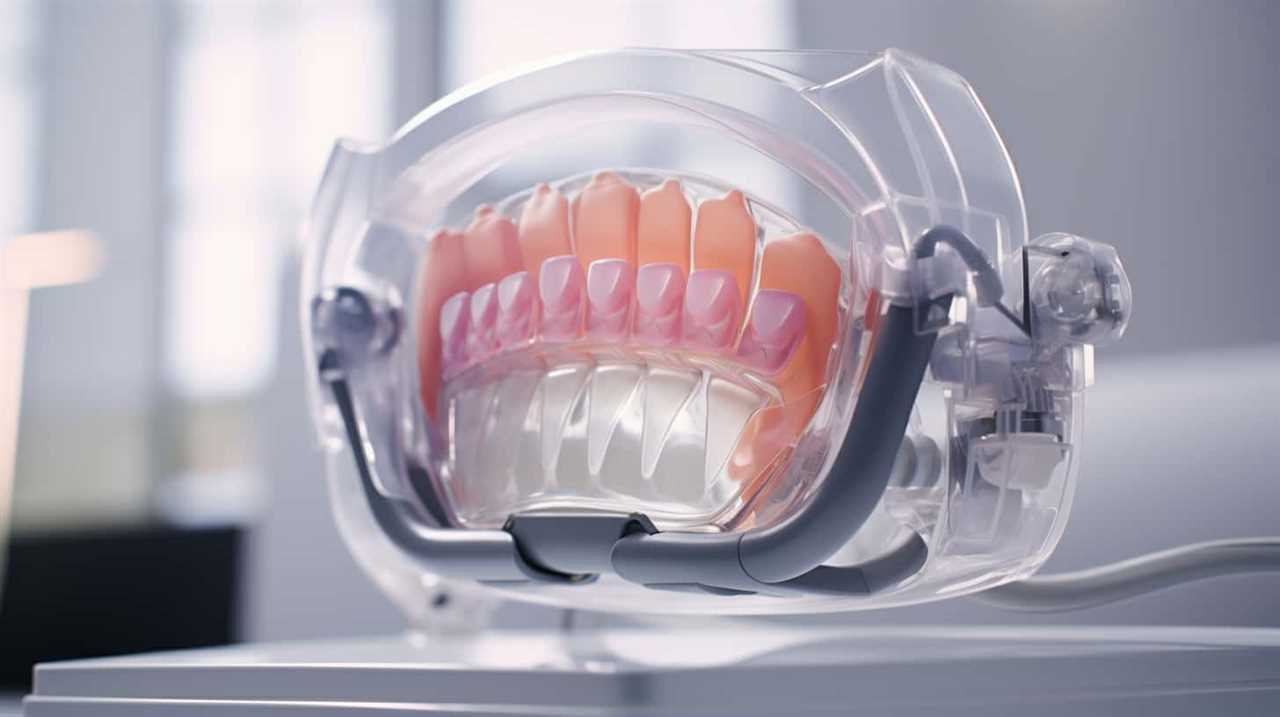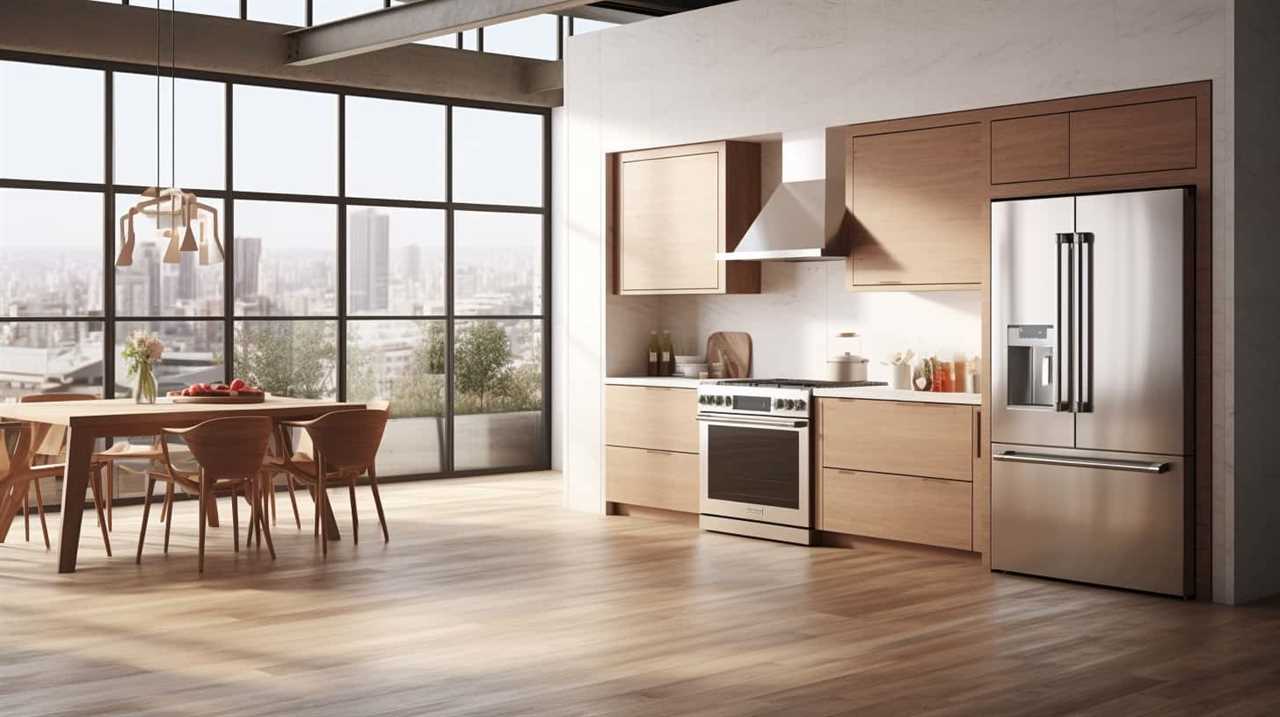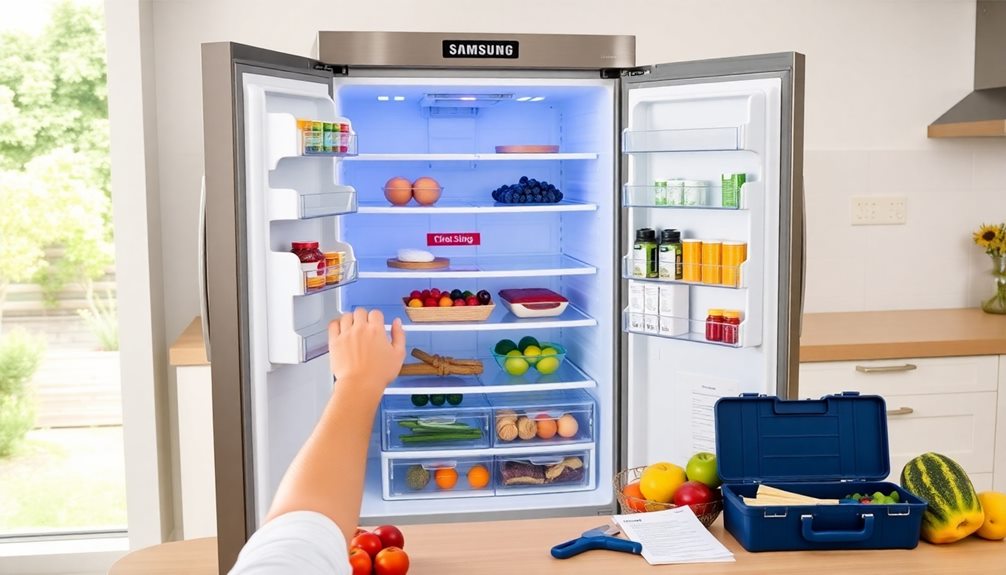Do integrated appliances cost more in reality?
This question has been on the minds of many homeowners seeking to upgrade their kitchens.
Well, we’ve done the research and the results may surprise you. According to a recent study, integrated appliances can cost up to 30% more than standalone ones.
However, before you dismiss them as too pricey, it’s important to consider the long-term savings and hidden costs associated with these sleek, space-saving appliances.

So, let’s dive deeper into the world of integrated appliances and explore the true value they offer.
Key Takeaways
- Integrated appliances are generally more expensive than standalone ones.
- The cost of integrated appliances is influenced by factors such as brand reputation, advanced features, higher-end materials, installation fees, and customization options.
- Hidden costs such as installation fees, maintenance and repair costs, and the need for specialized technicians can significantly impact the overall price of integrated appliances.
- Despite the higher initial cost, integrated appliances offer long-term savings through energy efficiency, reduced maintenance, and enhanced value for the home.
Factors Influencing Integrated Appliance Costs
Factors that influence the costs of integrated appliances include the brand reputation, features, and materials used in their construction.
When considering the brand reputation, customers are often willing to pay more for appliances from well-established and trusted companies. These brands have built a reputation for reliability and quality, which can justify a higher price point.
Additionally, the features offered by integrated appliances can greatly impact their cost. Appliances with advanced technology, energy-saving options, and smart capabilities tend to be more expensive due to the added functionality they provide.

Furthermore, the materials used in the construction of integrated appliances can affect their cost. Higher-end materials such as stainless steel or tempered glass can increase the price.
It’s important to note that installation fees and customization options can also contribute to the overall cost of integrated appliances.
Price Comparison: Integrated Vs. Standalone Appliances
We have found that integrated appliances are generally more expensive than standalone appliances. When comparing prices, it is important to consider not only the initial cost of the appliance but also the installation and maintenance costs. Integrated appliances require professional installation, which can add to the overall expense. Additionally, if any repairs or maintenance are needed, integrated appliances may require specialized technicians, leading to higher maintenance costs. To further illustrate the price comparison, we have provided a table below:
| Integrated Appliances | Standalone Appliances | |
|---|---|---|
| Initial Cost | Higher | Lower |
| Installation Cost | Higher | Lower |
| Maintenance Cost | Higher | Lower |
As shown in the table, integrated appliances tend to have higher initial, installation, and maintenance costs compared to standalone appliances.

Hidden Costs of Integrated Appliances
When comparing the price of integrated appliances to standalone appliances, it’s important to consider the hidden costs that come with integrated appliances.
While integrated appliances may seem more expensive upfront, there are additional expenses that need to be taken into account. One such expense is the installation fees. Integrated appliances often require professional installation, which can add to the overall cost.
Additionally, maintenance expenses should be considered. Integrated appliances may require specialized maintenance and repairs, which can be more costly compared to standalone appliances.
These hidden costs can significantly impact the overall price of integrated appliances and should be factored into the decision-making process.

However, it’s important to note that despite these hidden costs, integrated appliances can offer long-term savings, which we’ll discuss in the next section.
Long-Term Savings With Integrated Appliances
To fully understand the cost-effectiveness of integrated appliances, it’s essential to take into account the potential long-term savings they offer. Integrated appliances are known for their energy efficiency, which can result in significant savings on utility bills over time. Here are some key long-term savings to consider:
- Energy Efficiency:
- Integrated appliances are designed to be more energy-efficient than their standalone counterparts. They’re equipped with advanced features such as smart sensors and timers, which optimize energy usage and reduce wastage.
- This increased energy efficiency translates into lower energy bills, saving you money in the long run.
- Reduced Maintenance Costs:
- Integrated appliances are built to last and require less maintenance compared to standalone appliances.
- With fewer components exposed to wear and tear, the need for repairs and replacements is minimized, resulting in long-term cost savings.
Making the Decision: Value Vs. Budget Considerations
As we consider the decision between value and budget, it’s important to weigh the long-term savings of integrated appliances against their initial cost.
When it comes to value, integrated appliances offer a sleek and seamless look that can enhance the overall aesthetics of your kitchen. This seamless integration creates a cohesive and streamlined appearance, which can add value to your home.
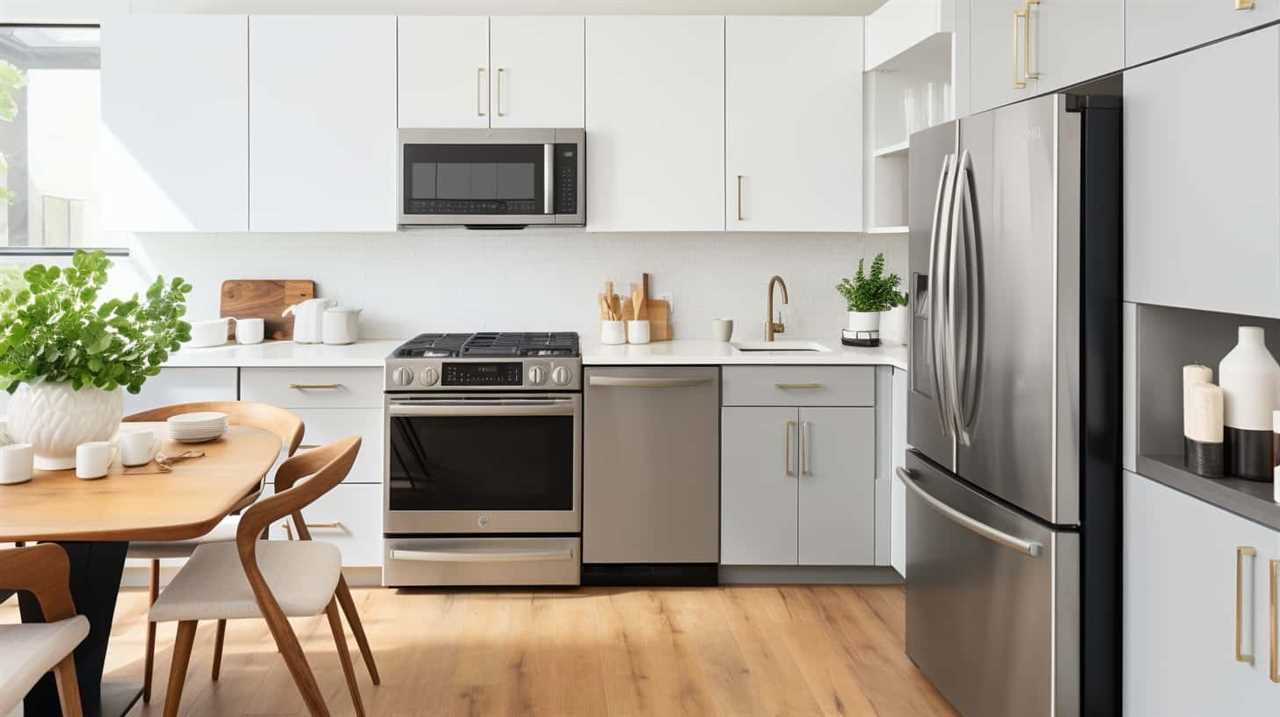
However, it’s important to also consider the budget aspect. Integrated appliances tend to be more expensive upfront compared to their freestanding counterparts. Additionally, there may be installation challenges involved, as integrated appliances often require professional installation to ensure a proper fit and functionality.
It’s crucial to carefully consider both the value and budget aspects before making a decision on whether to invest in integrated appliances.
Frequently Asked Questions
What Are the Different Types of Integrated Appliances Available in the Market?
There are various types of integrated appliances available in the market, such as built-in and freestanding appliances. Each type has its pros and cons, and it’s important to consider these factors before making a decision.
Are There Any Specific Brands That Offer Better Value for Money When It Comes to Integrated Appliances?
When considering integrated appliances, it’s important to weigh the extra cost against the benefits they offer. Factors like brand reputation, energy efficiency, and warranty coverage should also be taken into account.
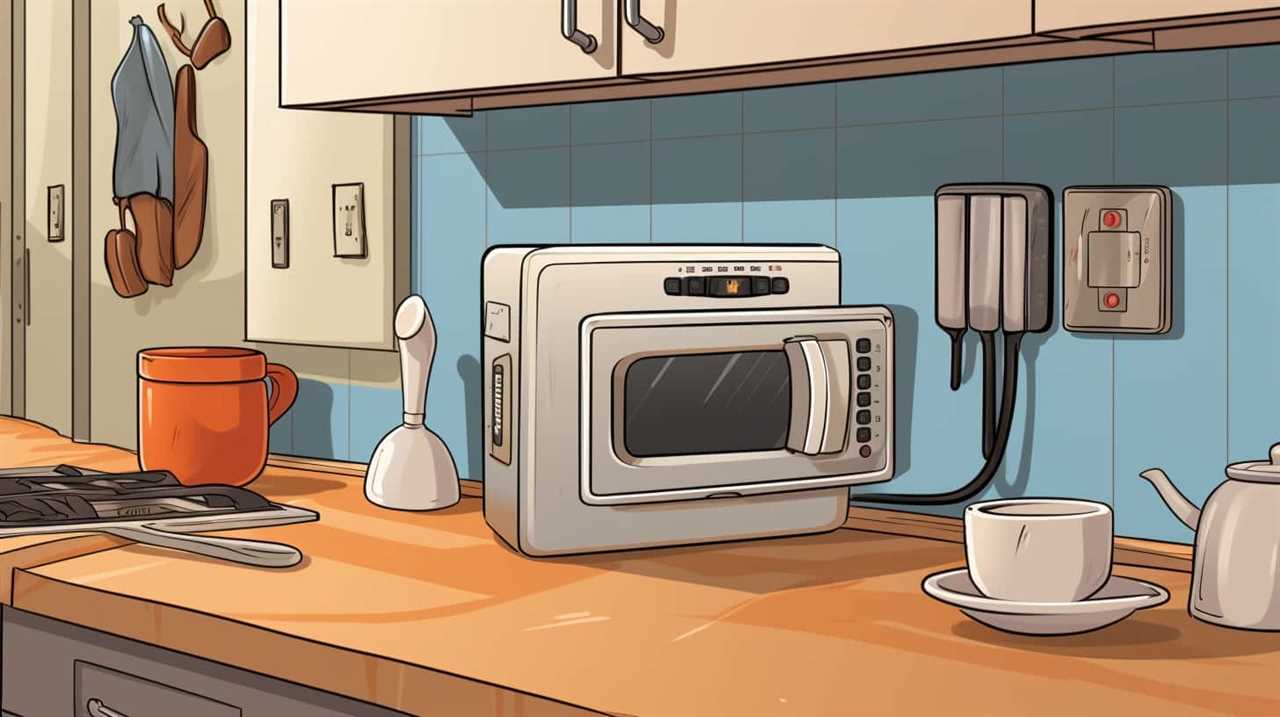
Can Integrated Appliances Be Easily Repaired or Replaced if They Break Down?
When it comes to integrated appliances, repairability and cost effectiveness are important considerations. It is crucial to research and choose brands that offer reliable repair services and affordable replacement options in case of breakdowns.
Are There Any Government Incentives or Tax Benefits for Choosing Integrated Appliances?
When considering integrated appliances, it’s worth exploring if there are any government incentives or tax benefits. These incentives can help offset the initial cost and make the decision more financially advantageous.
Do Integrated Appliances Require Any Special Installation or Maintenance Procedures Compared to Standalone Appliances?
When it comes to integrated appliances, special installation and maintenance procedures may be required compared to standalone appliances. These additional steps ensure proper integration and functionality, adding to the overall cost and complexity.
Conclusion
In conclusion, the decision to choose integrated or standalone appliances ultimately comes down to value versus budget considerations.
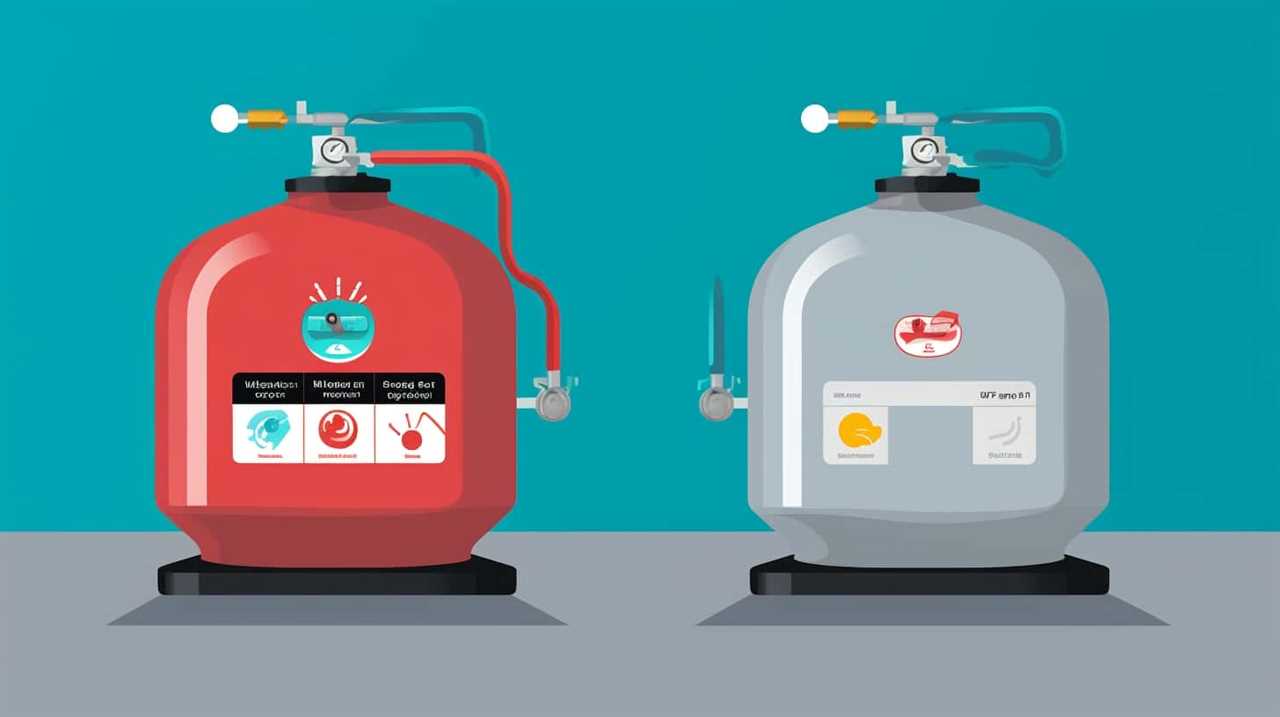
While integrated appliances may have a higher upfront cost, they offer a sleek and seamless look that can enhance the overall aesthetic of a kitchen.
Additionally, the long-term savings and hidden costs of integrated appliances should also be taken into account.
Ultimately, it’s important for consumers to weigh these factors and make an informed decision based on their individual needs and preferences.
